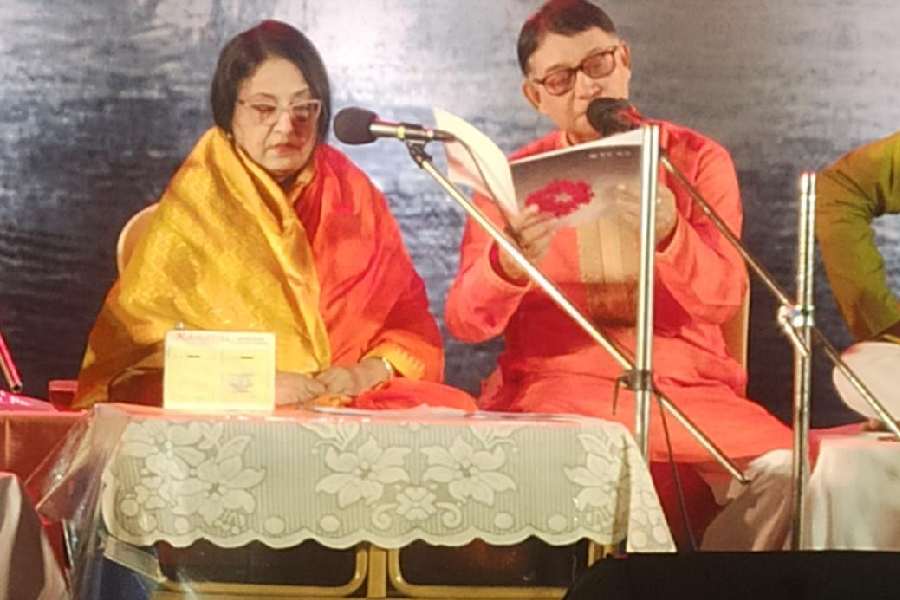In some ways, Manisha Basu’s performance titled Apan Gaan, organised by Rabivairabi at the Triguna Sen Auditorium, reminded one of Suchitra Mitra’s last few stage appearances. Although the voice was weary and keeling towards the staccato with some sluggish entries, the dregs of a once-upon-a-time power and style largely remained omnipresent throughout the recital as a student paid tribute to her teacher on the eve of the latter’s centenary birth year celebrations.
The combination of a rich baritone and sparks of musical aggression was visible in most of Basu’s presentations. Beginning with “Akash bhora shurjo tara”, which meandered on a familiar path with a choral backup, her performance failed to find a way out of an anaesthetised state. On surer grounds was “Ke go antaratara she”, which created an airy atmosphere and found the singer in an octave that she is most comfortable in — sometimes lethargic and sometimes forceful. A chunk of her session was devoted to Raktakarabi (wherein she sang and read simultaneously).
In at least two songs, “Tumi khushi thako” and “Chokher joler laglo jowar”, she tried a combination of dramatic and musical coherences. The reflective moments of both songs were treated with utmost care and she landed on these notes with an assured style. Mention must be made of the accompanying violinist who played an impactful solo signature note that added verve to the latter number. Although there was a pleasing output to most of the songs — even the two lines from “Borisho dhara majhe” — there could have been a smarter way of designing the event than the singer having disgruntled conversations with the sound technician and a rather cold connection with the reciter and the musicians. Nevertheless, Debashis Bose used his skilful technique to read through the pathos-driven lines of the play, giving a fillip to the vocals and the presentation.










